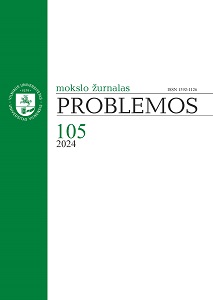Kāla: laiko veidai klasikinėje Indijos filosofijoje
Kāla: Faces of Time in Classical Indian Philosophy
Author(s): Audrius BeinoriusSubject(s): Epistemology, Indian Philosophy, Hermeneutics
Published by: Vilniaus Universiteto Leidykla
Keywords: time; perception; Indian philosophy; epistemology; Buddhism; Nyāya-Vaiśeṣika;
Summary/Abstract: This article discusses the perception of time (kāla) in the Brahmanical, Buddhist and Jain schools on the basis of primary Sanskrit sources and critical studies. The study employs an integral methodology – textual-semantic, hermeneutical and comparative – to approach the study. It concludes that the approaches of the schools diverge most prominently on the following questions: is the perception of present possible? Is the sensible present instantaneous, or does it have duration? Is time objective and real, or is it just a subjective construction? It has been revealed that there is no single dominant perspective in the Indian philosophical approaches, with the principal polemic being between the Buddhist and the Nyāya-Vaiśeṣika schools. The study concludes that, in Indian philosophy, time is understood not psychologically, but epistemologically, in relation to questions of reliable cognition and the validity of knowledge.
Journal: Problemos
- Issue Year: 2024
- Issue No: 105
- Page Range: 21-31
- Page Count: 11
- Language: Lithuanian

